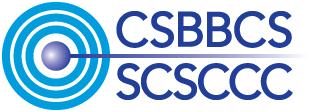CSBBCS / SCSCCC Awards
The CSBBCS / SCSCCC hands out up to four faculty awards annually as well as student awards for presentations given at our Annual Meeting.
This award shall be made to an individual who, in the opinion of the selection committee, has made a significant contribution to the study of brain, behaviour, and cognitive science. The committee shall be composed of the five immediate past presidents of the Canadian Society for Brain, Behaviour, and Cognitive Science (BBCS), and shall be chaired by the least recent past president.
In making its selection the committee will consider the following three criteria:
- An individual whose research has been sustained and meritorious and has enhanced the knowledge base of brain, behaviour, and cognition,
- An individual whose training of students, postdoctoral fellows and colleagues has had a significant impact on brain, behaviour, and cognitive science, and
- An individual whose influence has been exerted through leadership as a theorist or spokesperson for the discipline.
Normally, the awardee shall have conducted a significant proportion of his/her research training or disciplinary work within Canada. The awardee is invited to give the Donald O. Hebb Distinguished Contribution address at the annual BBCS meeting of that year.
Richard C. Tees Distinguished Leadership Award
This award acknowledges an individual who has contributed outstanding service to the CSBBCS and to advancing research in brain, behaviour, and cognitive science in Canada. This is not an annual award but will be awarded by the CSBBCS Executive to recognize extraordinary leadership and service to the CSBBCS community. In the event that an Award is made, a presentation will take place during the annual meeting of the Society.
Nominations remain active for three years. Therefore, nominations submitted for the award in the years 2017 and 2018 need not be re-submitted; they will be considered automatically by the selection committee. The Executive Committee of the CSBBCS serves as the Tees Award Committee. Members of the decision committee are not eligible for nomination.
CSBBCS Mid-Career Award
At the 2019 Business Meeting, the membership agreed to create a Mid-Career Award.
This award shall be made to an individual who, in the opinion of the selection committee, has made a significant contribution to the study of brain, behaviour, and cognitive science. Eligible nominees must have completed their Ph.D. at least 11 years, but not more than 25 years, prior to receiving the nomination.
In making its selection the committee will consider the following three criteria:
• An individual whose research has been sustained and meritorious and has enhanced the knowledge base of brain, and cognition,
• An individual who has a promising record of training of students, postdoctoral fellows and colleagues who have had a significant impact on brain, behavior, and cognitive science, and
• An individual who is emerging as a leading theorist or spokesperson for the discipline.
CSBBCS Vincent Di Lollo Early Career Award
The CSBBCS Early Career Award recognizes the exceptional quality and importance of the contributions of a new researcher (within 10 years of receiving his or her PhD) to knowledge in brain, behaviour, and cognitive science in Canada. This honour was awarded for the first time in 2011.
In recognition of Vincent Di Lollo's extensive and enduring contributions to the Society, the CSBBCS Early Career Award was renamed in 2014, and is now called the CSBBCS Vincent Di Lollo Early Career Award.
Donald O. Hebb Graduate Student Awards
This award shall be made to the individual who, in the opinion of the Awards Committee, has been judged to have presented the best paper or poster at the annual meeting of the Canadian Society for Brain, Behaviour, and Cognitive Science. Normally, the awardee would be a Canadian citizen or would have conducted a significant proportion of his/her research, training or disciplinary work within Canada.
CSBBCS/CPA CJEP Best Article Award
The CSBBCS and the CPA co-sponsor an annual award for the best article published in the Canadian Journal of Experimental Psychology.

